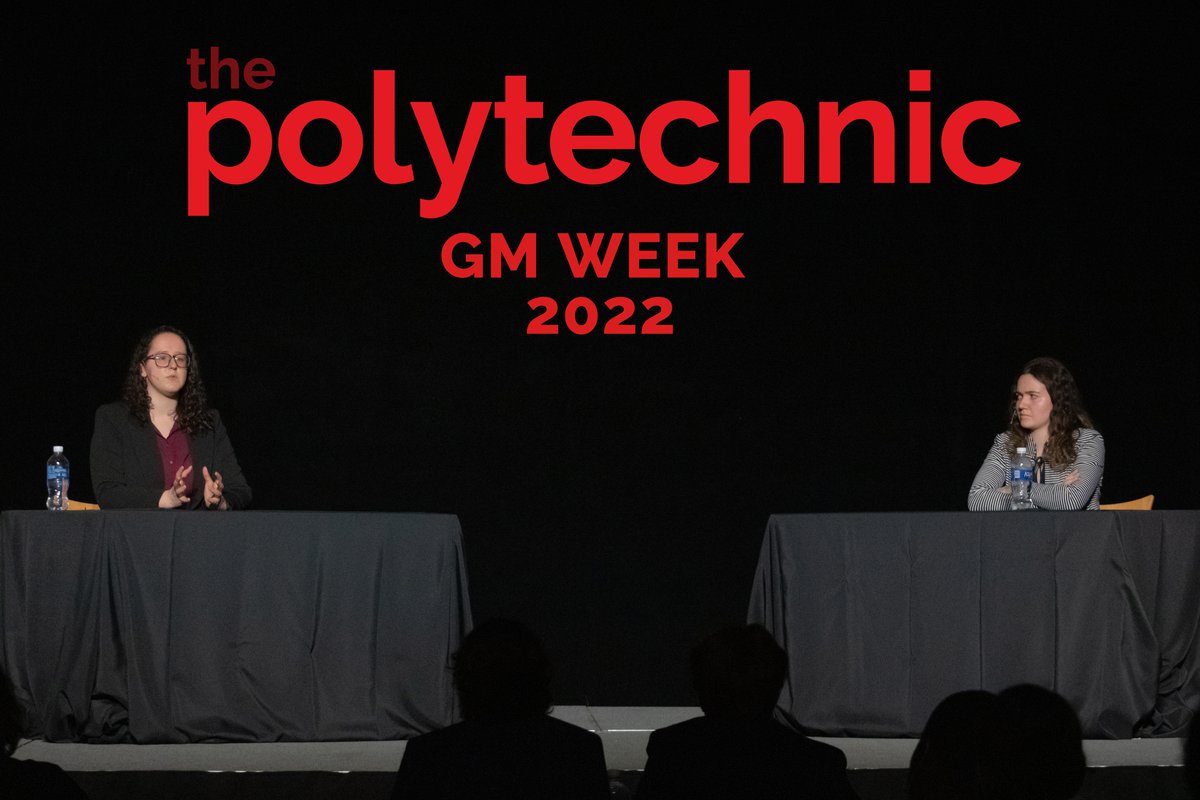Senate holds Q&A session with President Schmidt
Grand Marshal Cait Bennett ’23G led a Q&A session in the Shelnutt Gallery, with Dr. Martin A. Schmidt, the president of Rensselaer, sitting next to her.
After Bennett introduced the Senate and its committees, the Q&A session was split into two parts. The first part covered pre-submitted questions, which were asked by Bennett, while the second part took questions from the audience.
The first pre-submitted question regarded mental health efforts on campus and the challenges to improving mental health. When it came to mental health efforts, Schmidt spoke of “[triaging] the issues,” but said identifying when a mental health problem went beyond the resources of the Institute was a particular challenge. He then added that hiring more counselors was not necessarily a solution due to RPI’s limited resources.
Bennett asked what Schmidt’s average day looked like and if there were any misconceptions about his role. Schmidt began by revealing he’s an early riser, waking up between 4:30 or 5 in the morning. “I feel like I need two to three hours in the morning—that’s when I sort of feel like I can do my best singular work,” he said. When asked about the most important part of his title, Schmidt gave multiple answers that included community engagement, having a support network, and ensuring RPI “[looks] beyond the horizon.” Finally, Schmidt clarified that the president doesn’t focus on day-to-day issues, and his previous position as provost at MIT forced him to remind himself of that fact.
The next question was on shared governance and ways to engage students in the decision-making process at RPI. In response, Schmidt emphasized mutual understanding between students and the administration, using the Arch as an example. “I heard a couple of times in one or two forums people saying, ‘I think the Arch is just a money grab,’ and I said, ‘Well, if it is, could you please tell me where the money is because we sure as hell could use it.’” He then noted one way to assure mutual understanding was to have “trusted conversations” between student leaders and the administration and have the student leaders talk to the rest of the student body.
For the final pre-submitted question, Bennett asked Schmidt what brought RPI students together. Schmidt spoke about shared experiences, mentioning how freshmen during the fall 2021 semester didn’t get to know each other due to quarantine protocols. “That’s really tough,” said Schmidt, noting that when he was a freshman he “knew everyone on the first floor of Bray Hall.”
Bennett then opened up the Q&A to the audience. The first question was from Community Relations Committee chairperson Talulah Patch ’24, who asked if there was anything Schmidt noticed in his administration that lacked student input. Schmidt responded that anything involving students should have student input.
Graduate Senator Alexander Lutsevich commented that there are very few resources for graduate students, especially for writing grant proposals and academic papers. He stressed, “If you have a good lab advisor…you’re golden. If you don’t, you’re on your own.” He further said there were no standards on how to use reference management tools either, which made it difficult for graduate students to learn how to write papers. For his last comment, Lutsevich noted that RPI’s health insurance has had high increases over the past two years and asked if it was possible for the Institute to pool their resources with other universities to lower insurance costs. In response to pooling resources, Schmidt said he didn’t have a good answer, but he would pass it off to the Provost.
Student Government Communications chairperson Mitchell Healey ’24 asked how Greek life has changed at RPI over the years and what role it will take on in the future. Schmidt replied that interest in Greek life fluctuates generation to generation, but the main idea was to ensure financial stability. He also cited the importance of the relationship between administration and alumni in solving problems related to Greek life.
Class of 2025 Senator Phillip Paterson mentioned that alumni donations were on a downward trend in the midst of a labor shortage. Paterson followed up by asking what the strongest factor in increasing RPI endowment would be. In response, Schmidt brought up corporate partnerships, more research opportunities, and getting students involved in outreach as potential solutions to grow endowment funds.
Near the end of the Q&A, Hospitality Services Advisory Committee chairperson Finn Welch ’25 asked Schmidt what events he would like to see brought back to RPI. After jokingly mentioning the beer truck during Grand Marshal Week, Schmidt said he wanted students to fill the Houston Field House during hockey games.
This Student Senate meeting was held on November 2. The next Student Senate meeting will be held Wednesday at 8 pm in the Student Government Suite.

 GM Week 2022
GM Week 2022